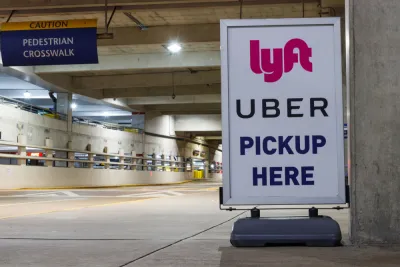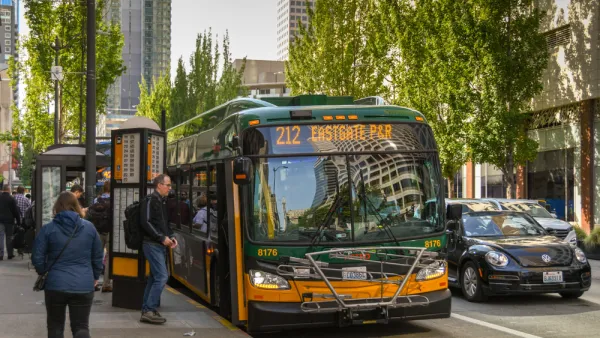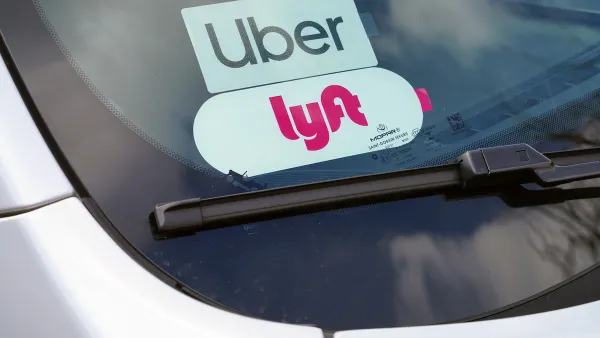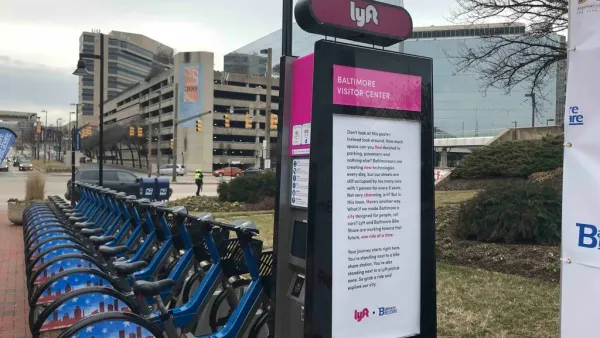High prices, labor issues, and legal blunders plague the transportation network companies, who are increasingly shifting to deliveries over rides.

In an article for Streetsblog Massachusetts, Christian MilNeil describes the state of transportation network companies (TNCs) in the Bay State. “In the two years leading up to the pandemic, ridership on Uber and Lyft had been growing explosively; an analysis of the companies’ own data estimated that their drivers logged a staggering 23 to 25 million miles in the City of Boston – roughly 8 percent of all the city’s traffic – during the month of September 2018.”
Now, more than two years after the pandemic began, ridership on these services has not recovered. “Like the state’s transit agencies, Uber and Lyft have reportedly struggled with driver shortages, and customers are reporting longer wait times and higher prices. During the pandemic, substantial numbers of its drivers also pivoted from transporting passengers to transporting take-out meals and other deliveries.”
MilNeil writes that “The company’s reported gross revenue from passenger bookings in the last three months of 2021 was down by 16 percent compared to the same period of 2019 (from $13.5 billion in 2019, to $11.3 billion in 2021), in spite of considerably higher prices.” Meanwhile, the “value of the company’s bookings from deliveries in the same time period had more than tripled (from $4.4 billion in 2019 to $13.4 billion in 2021).”
Uber and Lyft are also recovering from an expensive legal loss after the Massachusetts Supreme Judicial Court ruled that a ballot initiative proposed by the companies that sought to emulate California’s 2020 referendum classifying drivers as independent contractors was illegal.
FULL STORY: Uber and Lyft Ridership May Be Faring Even Worse Than Transit

Analysis: Cybertruck Fatality Rate Far Exceeds That of Ford Pinto
The Tesla Cybertruck was recalled seven times last year.

National Parks Layoffs Will Cause Communities to Lose Billions
Thousands of essential park workers were laid off this week, just before the busy spring break season.

Retro-silient?: America’s First “Eco-burb,” The Woodlands Turns 50
A master-planned community north of Houston offers lessons on green infrastructure and resilient design, but falls short of its founder’s lofty affordability and walkability goals.

Test News Post 1
This is a summary

Analysis: Cybertruck Fatality Rate Far Exceeds That of Ford Pinto
The Tesla Cybertruck was recalled seven times last year.

Test News Headline 46
Test for the image on the front page.
Urban Design for Planners 1: Software Tools
This six-course series explores essential urban design concepts using open source software and equips planners with the tools they need to participate fully in the urban design process.
Planning for Universal Design
Learn the tools for implementing Universal Design in planning regulations.
EMC Planning Group, Inc.
Planetizen
Planetizen
Mpact (formerly Rail~Volution)
Great Falls Development Authority, Inc.
HUDs Office of Policy Development and Research
NYU Wagner Graduate School of Public Service




























